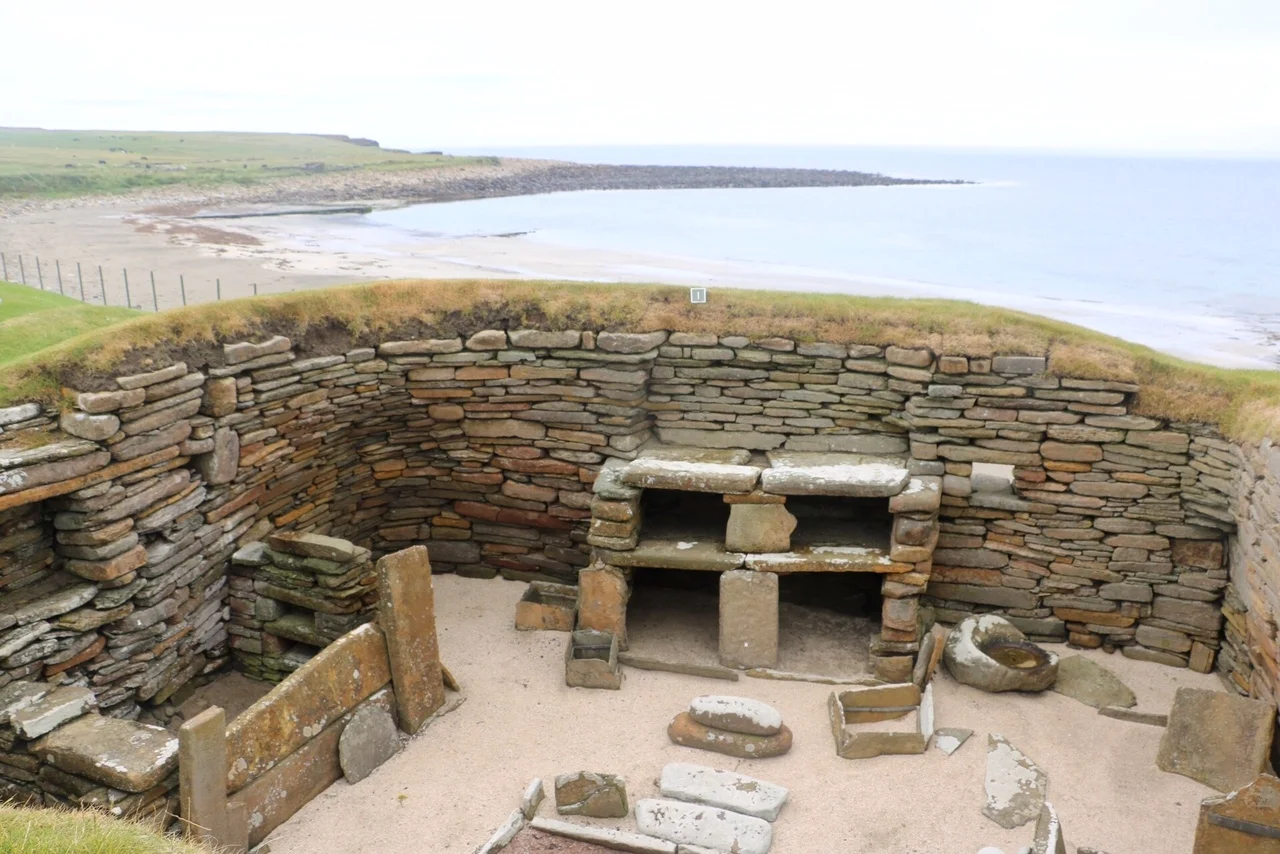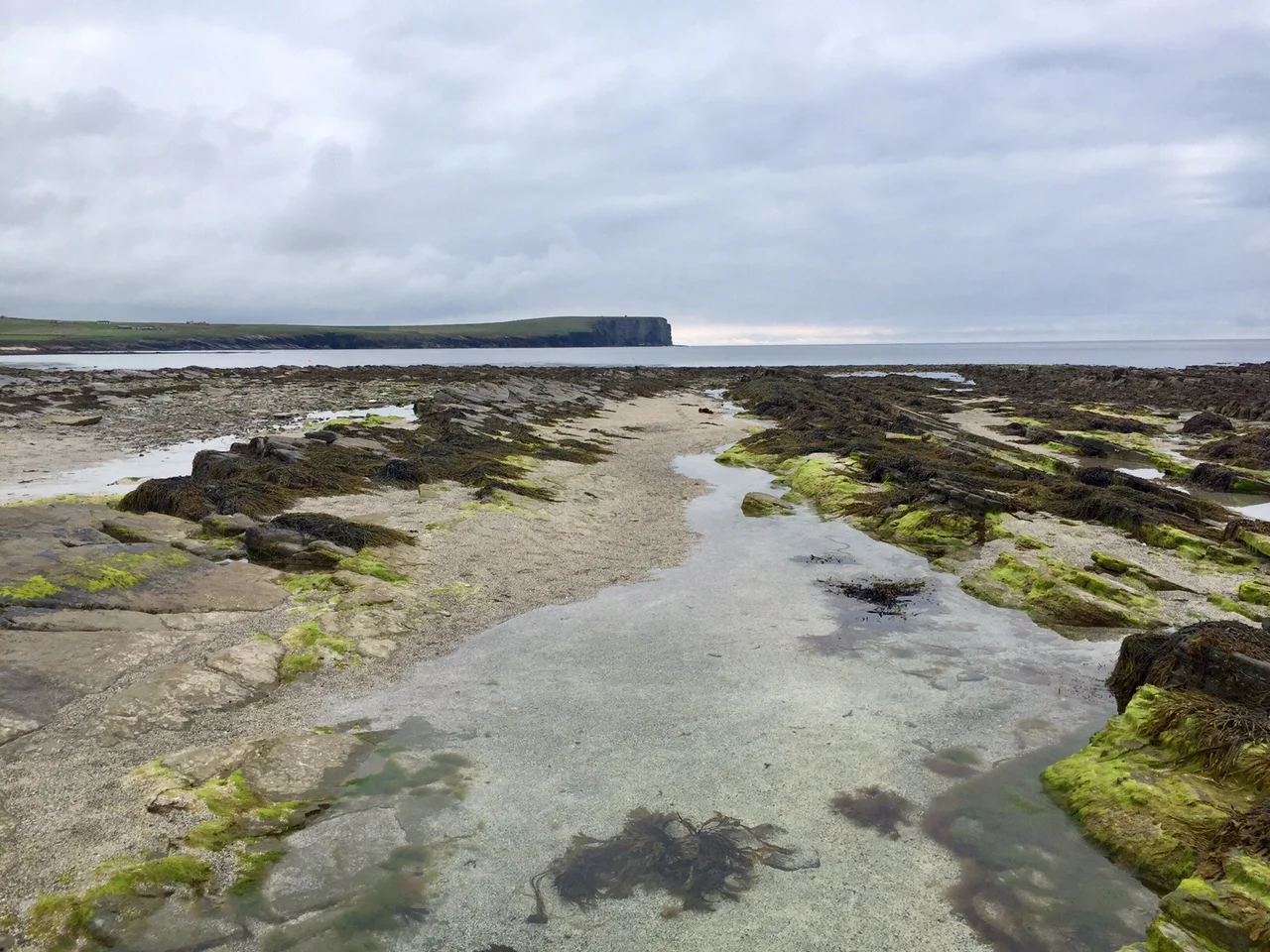It’s always a delight to read novels in situ - enjoying a work of literature while immersed in the landscape of its setting adds value to both experiences.
My first stop on arriving in the Scottish island of Orkney was Skara Brae - a site of neolithic houses, beautifully preserved in the sand, which pre-date the Egyptian pyramids and Stonehenge. While sheltering from the ubiquitous Orcadian wind in the gift shop, I chanced upon treasure and gave a squeak like an archaeologist uncovering an ancient hoard: a book set here in Orkney.
The Outrun describes Amy Liptrot’s journey from her island home—and the kind of childhood that involved galloping on horseback across the sands behind Skara Brae—to a ten-year period of alcoholism in London, then back home to Orkney and sobriety. Rather than the misery memoir you might expect, Liptrot engages in a psychoanalysis of Orkney itself. The Outrun is a detailed, beautiful and compelling paean to the place that made, broke and healed her.
The book is full of curiosities: such as the time a storm washed a seal clean over a fence. Or the fact that schools prevent the smallest children from playing outside in high winds for fear they will blow away. And the kindly neighbour who delivered a third of a cabbage to her isolated house because she’d complained that a whole vegetable for too large for a single person.
Sometimes, it’s hard to know where Orkney ends and Amy begins. Time and again, she frames herself, her illness (and that of her father who is bipolar), in terms of the landscape; glorious and deeply meaningful metaphors about tides, migratory birds, geology. At the start, she says: ‘I was born into the continual, perceptible crashing of sea at the edges’. By the end of the book: ‘I’m realising that times of anxiety are necessary and unavoidable and, in any case, I like the edge: it’s where I get the best ideas. The edge is where I’m from.’
The Outrun started as a column and the later chapters occasionally fall into a episodic pattern that suggests a compilation of articles rather than a continuous narrative. But Liptrot’s elegant prose, acute observations and straightforward honesty carry this memoir about life lived in the wild.


